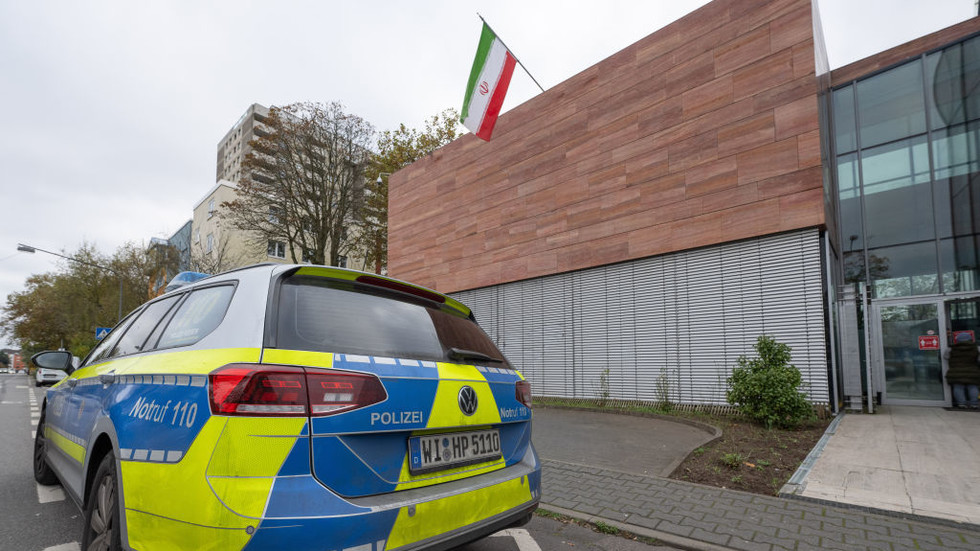In response to Iran’s execution of Jamshid Sharmahd, a German-Iranian dual citizen convicted of terrorism offenses, Germany has announced the closure of all Iranian consulates within its borders. German Foreign Minister Annalena Baerbock confirmed this decision, emphasizing that Berlin would seek EU sanctions against individuals involved in Sharmahd’s execution, which took place earlier this week. Iranian state media described Sharmahd’s actions as “planning and orchestrating a series of terrorist acts,” particularly highlighting his alleged involvement in the 2008 bombing of a mosque in Shiraz that resulted in significant casualties. Baerbock characterized the execution as a violation of international norms and warned that there would be “serious consequences” for such actions, reinforcing Germany’s condemnation of Iran’s method of addressing dissent and political opposition.
Jamshid Sharmahd had been under the spotlight since his arrest by Iranian authorities in 2020. A political activist who had resided in the United States since 2003, Sharmahd led a group of Iranian exiles seeking to overthrow the Iranian government and restore the monarchy that existed prior to the 1979 Islamic Revolution. His history of opposition to the Iranian regime turned him into a target, leading to accusations of terrorism upon his arrest in the UAE. Following a secretive trial, where critics noted a lack of due process, he was sentenced to death. Germany’s decision to close its consulates is seen as a direct escalation in diplomatic tensions with Iran, signaling that Berlin views the execution of one of its citizens as beyond a political matter and as a significant breach of trust.
Iran’s response to Germany’s outrage has been combative, with Foreign Minister Abbas Araghchi labeling Sharmahd as a terrorist who deserved the sentence meted out by Iranian courts. Araghchi dismissed claims of a death penalty being a diplomatic issue, arguing that Sharmahd’s actions were tied to real victims in Iran. The Iranian government has consistently framed its actions as necessary to maintain national security, especially when dealing with exiles it accuses of terrorist plots against the state. This growing narrative from Iran underscores a profound ideological rift between Tehran and Western nations, particularly regarding human rights and how justice is administered.
The broader European Union stance has also shifted, with EU foreign policy chief Josep Borrell condemning Sharmahd’s execution and indicating that the EU is considering appropriate measures in reaction to Iran’s actions. However, the remarks made by Araghchi point to a rising tension in diplomatic relations between Iran and Europe. He accused the EU of hypocrisy, suggesting that if it were truly concerned about human rights, it should act on other humanitarian crises, such as the ongoing conflict in Gaza. This rebuttal highlights the complexities in EU-Iran relations, where geopolitical crises intersect and complicate responses to individual matters concerning human rights.
Baerbock’s declarations and announcements on consulate closures reflect a significant shift in Germany’s approach to Iran, particularly following the growing unease surrounding Iran’s treatment of dissidents and dual nationals. The German government appears determined to hold Iran accountable and seeks to regain a moral high ground that may have been perceived as compromised due to silence or ineffectiveness in addressing such issues prior. The intent to impose sanctions and push for a unified EU response indicates a larger strategy to compel Tehran to respect international standards and the rights of foreign nationals.
Ultimately, the execution of Jamshid Sharmahd may lead to a broader reevaluation of Germany’s foreign policy toward Iran and set the stage for intensified diplomatic confrontations. As Berlin seeks to align its actions with EU preferences, the incident underlines significant fractures in relations due to diverging interpretations of justice and human rights. Simultaneously, it poses challenges for the EU in navigating its collective response to assertive actions by non-compliant states while reconciling criticisms of its international engagement with the broader Middle Eastern context, notably concerning human rights violations occurring in places like Gaza. The path forward for both Germany and the wider EU will hinge on defining effective strategies that encompass not only punitive measures but also constructive dialogue to resolve these escalating tensions peacefully.

